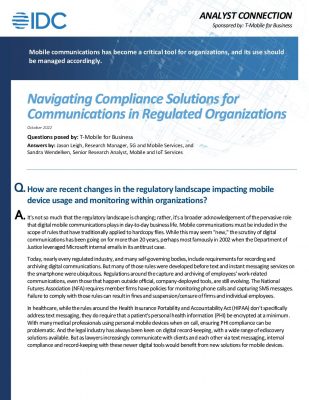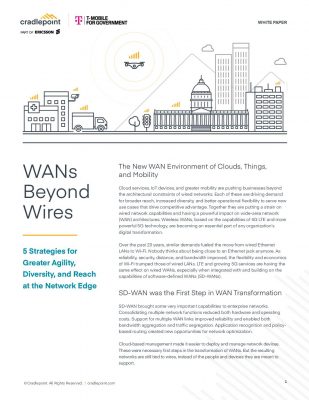Highlights:
- Bots are making substantial progress in transforming process automation within the business landscape.
- Low-code or no-code platforms simplify process improvement with accessible drag-and-drop elements, eliminating the need for complex coding.
Modern Business Process Management (BPM) tools evolved from basic digital workflow management systems in the 1980s, initially limited to tracking scanned documents. By the early 2000s, BPM tools expanded their capabilities, encompassing process modeling, reporting, and analytics.
Now, BPM and its associated tools have undergone substantial changes. Advancements in robotic process automation (RPA), process mining, and low-code development platforms have driven this transformation.
While BPM may not boast the same allure or hype as some cutting-edge automation technologies, its significance lies in ensuring enterprises automate strategically. Tools supporting BPM processes are evolving to become more automated, intelligent, and user-friendly.
These advancements empower a broader audience of business users to participate in process improvement, resembling the citizen developer trend in IT. As business process management gets more advanced and widespread, people who handle business processes can achieve more meaningful outcomes and measure their success better.
In 2024, several trends are anticipated to shape BPM’s evolution and impact on business processes.
Let’s discuss some of these business process management trends.
Trend 1: Entry of Bots in Process Automation
Bots are making significant strides in revolutionizing business process automation, shifting from traditional rule-based systems to more dynamic workflows. Robotic process automation (RPA) bots have played a major transformative role.
These bots are like smart helpers because they use artificial intelligence and machine learning. They’re really good at doing boring, rule-based, and time-consuming tasks. They do these tasks well and precisely, making things faster and more accurate. Seamless integration into existing systems allows organizations to leverage automation without extensive infrastructure changes.
In process automation, bots are adept at data entry, document processing, document data extraction, and even decision-making in specific scenarios. Their 24/7 operational capability and adaptability to diverse tasks make them valuable assets for optimizing various business processes.
Trend 2: Adaptive Case Management (ACM) Will Address Complex Tasks
In the dynamic business operations landscape, adaptive case management stands out as a growing ideology, gaining momentum and retaining significance in 2024. This is one of the evolutionary business process management trends shaping the future of business. This specialized approach is crucial for managing intricate work cases and enhancing business process management, particularly amid uncertainties and unpredictability.
ACM offers a structured and customized method, integrating software solutions to empower knowledge workers to manage processes effectively. By smoothly integrating Basic Process Management (BPM) for essential workflows and incorporating ACM’s advanced features in managing intricate logic, data, and collaborative tasks, businesses can leverage specialized expertise to enhance workflows and overall productivity.
Trend 3: BPM Focus Will Shift to Front-end Processes
The emphasis of BPM is on transitioning front-end processes. Initially, BPM concentrated on optimizing backend processes by enhancing data exchange among systems of record (ERP, MES, CRM). Presently and in the future, BPM will prioritize improving front-end processes that engage with interaction systems (such as digital audits, materials, and inventory systems for end-users).
This shift also involves integrating systems of record and engagement, ensuring seamless integration of shop-floor processes with backend accounting processes. This stands as a significant part of the business process management future trends.
Trend 4: Low code/No code Will Revolutionize BPM Accessibility
Platforms with low code or no code features allow you to drag and drop elements, simplifying the process improvement without requiring complex coding. This helps save time and effort. Unlike traditional BPM projects requiring specialized teams and complex solutions, low-code/no-code platforms democratize BPM. They automatically generate user-friendly maps and dashboards, facilitating accessible insights for all stakeholders, thus enabling broader project participation.
Trend 5: Real-time Business Process Management Tools Will Ensure Agility
Contemporary business process management tools prioritize real-time agility. While past BPM projects concentrated on collecting historical data for accurate process documentation, today, they focus on live monitoring and immediate implementation for competitiveness.
BPM solutions offer control features and cloud connectivity, enabling continuous monitoring and operation from any location. This approach minimizes the need for extensive redesigns, allowing process experts to implement impactful changes swiftly.
The rise of predictive process monitoring further empowers business users to identify and address issues swiftly.
Key Takeaways
Business process management serves as a crucial catalyst for organizations seeking to refine and optimize their intricate business processes, creating more efficient and seamlessly functioning workflows. The primary objective is to elevate productivity, expedite attaining strategic goals, and nurture overall business growth. As businesses consistently aim to stay at the forefront of innovation, they eagerly explore and adopt emerging technologies and methodologies to augment their operational endeavors.
In 2024, business process management trends will include leveraging low-code/no-code platforms, adopting hyper-automation trends, implementing adaptive case management, and many more. These initiatives aim to strengthen and optimize business processes, aligning them with the dynamic demands of the modern business environment.
As the business landscape evolves, it becomes imperative for organizations to contemplate the incorporation of these cutting-edge techniques and technologies into their existing business processes! Now is the opportune time for businesses to consider these latest business process management trends and integrate them into their operational frameworks to stay ahead in the competitive landscape of 2024.
Enhance your expertise by accessing a range of valuable technology-related whitepapers in our resource center.






































































